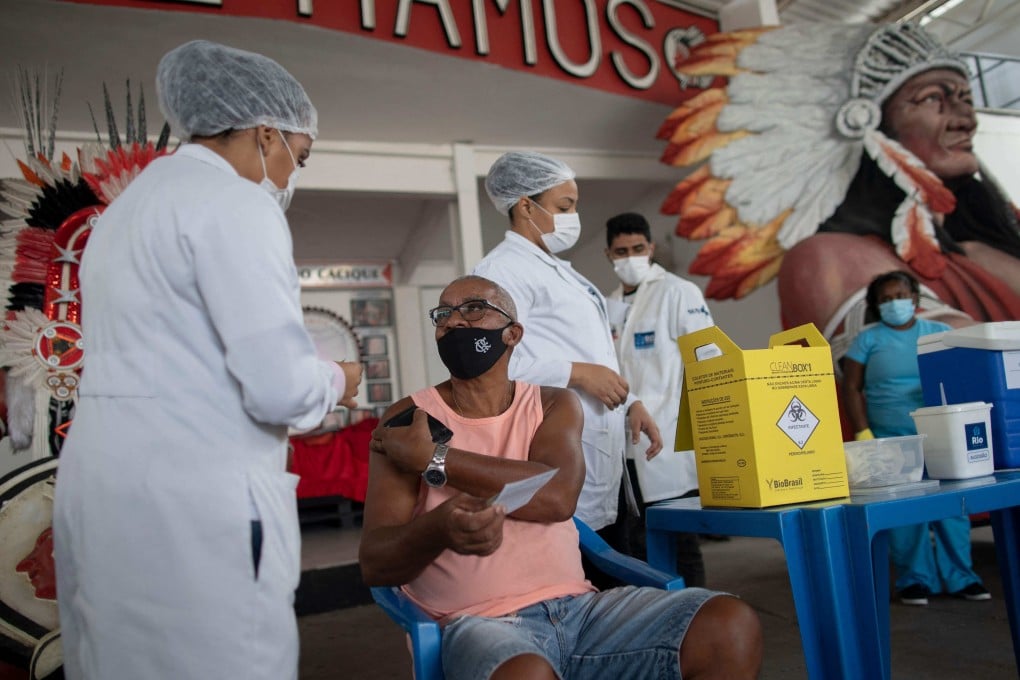China vaccines put to real-world test against Covid-19
- Studies of vaccinated populations in Chile and Brazil show Sinovac can reduce deaths, counter variants
- Efficacy rates are lower than mRNA shots but experts say that means more people will need to receive vaccinations to achieve herd immunity

The first large-scale, real-world study of the Sinovac Biotech inactivated vaccine – developed using the virus with its disease-producing capacity removed – found that, while it falls short of the effectiveness of vaccines using cutting edge mRNA technology, it significantly reduces deaths and symptomatic cases.
Jerome Kim, director general of the International Vaccine Institute in Seoul, said clinical trials were limited to measuring how well a vaccine worked in an individual but could not examine its ability to stem the disease’s spread at a population level, where more factors were at play. Tracking real world data on a new vaccine “gets to a question of effectiveness … does it work in countries that have achieved certain levels of protection?” he said.
Answering these questions takes time, but a study of 10.5 million people in Chile found the Sinovac vaccine was 67 per cent effective in preventing symptomatic Covid-19, and 80 per cent effective in preventing deaths – meaning that 100 fatal cases of the disease would have been reduced to just 20 if everyone was vaccinated. The researchers also found the vaccine was around 85 per cent effective at preventing hospitalisations.
The results were not far off those from a phase 3 clinical trial in Brazil, which found the vaccine was around 50 per cent effective and returned a similar figure to Chile’s real-world study for the prevention of moderate and severe cases of the disease. In contrast, a Turkish clinical trial found an 83.5 per cent rate of effectiveness, a result which could underline the importance of local circumstances.